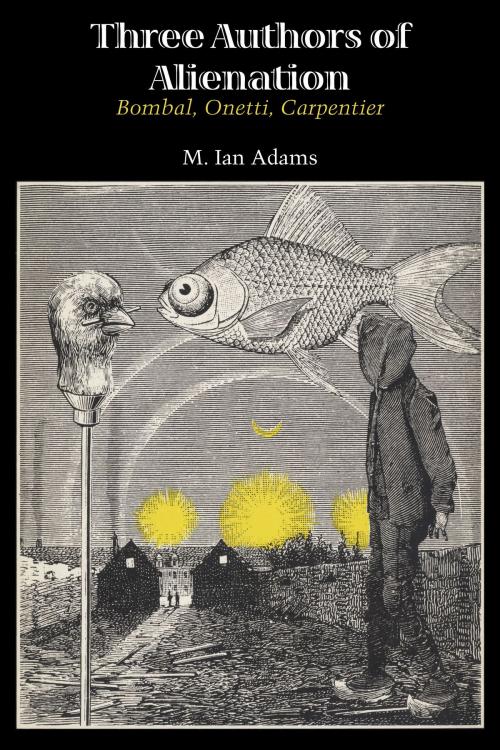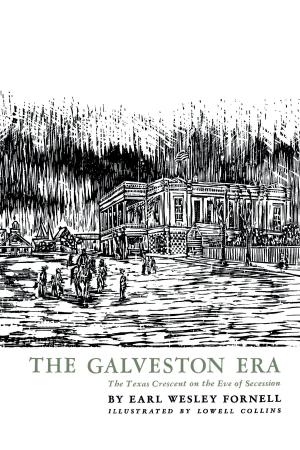Three Authors of Alienation
Bombal, Onetti, Carpentier
Fiction & Literature, Literary Theory & Criticism, Central & South American| Author: | M. Ian Adams | ISBN: | 9781477305645 |
| Publisher: | University of Texas Press | Publication: | December 15, 2014 |
| Imprint: | University of Texas Press | Language: | English |
| Author: | M. Ian Adams |
| ISBN: | 9781477305645 |
| Publisher: | University of Texas Press |
| Publication: | December 15, 2014 |
| Imprint: | University of Texas Press |
| Language: | English |
As a philosophical and social concept, alienation covers a broad range of mental states, both normal and abnormal. Correspondingly, a wide range of literary forms has been employed to deal with this important theme. In Three Authors of Alienation, an exploration of the literary expression of alienation, M. Ian Adams discusses the works of three contemporary Latin American authors. The fiction of María Luisa Bombal, Juan Carlos Onetti, and Alejo Carpentier reflects alienation, disgust with life, and a feeling of nothingness arising from the conditions of modern society. However, each author treats the theme differently. In La última niebla, María Luisa Bombal uses poetic imagery to create the emotional life of the protagonist. Juan Carlos Onetti portrays the schizoid extreme of alienation with a complex of symbols based on changes of vision caused by the mental states of his characters. In Los pasos perdidos, Alejo Carpentier presents the problem of the modern alienated artist who attempts to rid himself of his social alienation by changing times and cultures. In his close analysis of the works discussed, Adams considers each literary element in its context and also in terms of its relation to the larger artistic vision of the author. In addition, he places the works of the three authors in the greater perspective of modern social problems by discussing the concepts of social alienation proposed by Erich Fromm and Erich Kahler. His conclusion is that, although disgust with life and feelings of meaninglessness are at the heart of the experiences of the characters of all three authors, only in Alejo Carpentier’s Los pasos perdidos are social conditions the major cause of alienation. In the works of Bombal and Onetti, alienation is a result not of social conditions, but of factors unique to the characters’ personalities and circumstances. Three Authors of Alienation is a solid contribution to criticism of contemporary Latin American narrative. Adams’s projection of a social problem into the realm of aesthetic experience yields intriguing interpretations of both the problem and the literature.
As a philosophical and social concept, alienation covers a broad range of mental states, both normal and abnormal. Correspondingly, a wide range of literary forms has been employed to deal with this important theme. In Three Authors of Alienation, an exploration of the literary expression of alienation, M. Ian Adams discusses the works of three contemporary Latin American authors. The fiction of María Luisa Bombal, Juan Carlos Onetti, and Alejo Carpentier reflects alienation, disgust with life, and a feeling of nothingness arising from the conditions of modern society. However, each author treats the theme differently. In La última niebla, María Luisa Bombal uses poetic imagery to create the emotional life of the protagonist. Juan Carlos Onetti portrays the schizoid extreme of alienation with a complex of symbols based on changes of vision caused by the mental states of his characters. In Los pasos perdidos, Alejo Carpentier presents the problem of the modern alienated artist who attempts to rid himself of his social alienation by changing times and cultures. In his close analysis of the works discussed, Adams considers each literary element in its context and also in terms of its relation to the larger artistic vision of the author. In addition, he places the works of the three authors in the greater perspective of modern social problems by discussing the concepts of social alienation proposed by Erich Fromm and Erich Kahler. His conclusion is that, although disgust with life and feelings of meaninglessness are at the heart of the experiences of the characters of all three authors, only in Alejo Carpentier’s Los pasos perdidos are social conditions the major cause of alienation. In the works of Bombal and Onetti, alienation is a result not of social conditions, but of factors unique to the characters’ personalities and circumstances. Three Authors of Alienation is a solid contribution to criticism of contemporary Latin American narrative. Adams’s projection of a social problem into the realm of aesthetic experience yields intriguing interpretations of both the problem and the literature.















